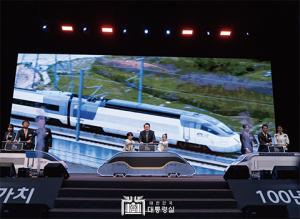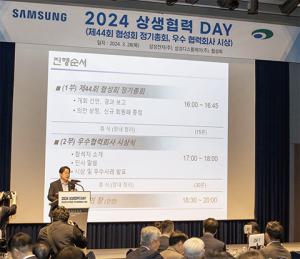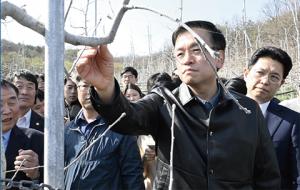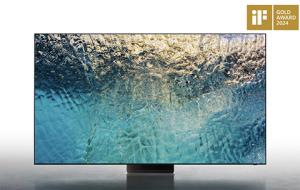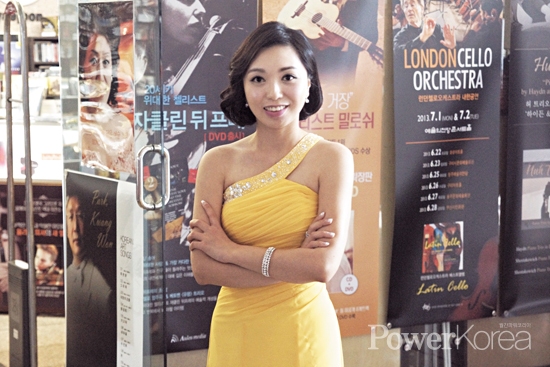 |
||
관객이 즐거운 클래식, 대중에게 다가가는 음악교육
브르노 콘서바토리 송화진 교수, 음악교육의 새 지평을 열다
플루티스트 송화진
아름다운 음악은 지친 마음을 치유하고, 영혼에 활력을 준다. 음악가와 관객은 음악을 통해 소통하며 영혼 깊숙한 곳의 감정을 교류한다. 선화예중 플루트 강사이자, 플루트 전문 스튜디어 ‘라 플루트’ 대표를 역임하고 있는 플루티스트 송화진 교수는 다양한 음악적 시도를 통해 관객이 공감할 수 있는 음악, 마음과 마음이 이어지는 음악의 세계를 열어왔다.
체계화된 커리큘럼과 실전 노하우로 음악사업 육성에 주력
단국대 음악대학 기악과를 졸업하고 국민대 음악대학원 관현악전공 석사, 이태리 로마 시립 아카데미아(A.M.I di Rome)에서 석사 및 최고연주자 과정을 졸업한 플루티스트 송화진 교수는 폭넓은 음악적 스펙트럼을 펼쳐 보이며 자신만의 음악세계를 꾸준히 확립해왔다. 특히 국내 유일의 플루트 전문 매거진인 「플루트 앤(Flute&, 현재의 Wind&)에서 9년간의 기자 활동을 통해 수많은 연주자들과 명사들을 만나고, 그들로부터 음악적 영감과 철학의 양분을 얻어온 송 교수는 연주자 개인에 한정된 닫힌 음악이 아닌, 관객과 소통하고, 관객이 즐거워할 수 있는 음악을 선사하고자 여러 가지 흥미로운 기획의 연주회를 열어왔다. 그림과 음악을 함께 즐길 수 있는 컨셉의 갤러리 연주, 플루트와 바이올린, 오보에, 첼로, 기타의 소리를 함께 듣는 듀오 콘서트 등 관객에게 다가가기 위한 새로운 시도들로 주목받았다. 지난 7월, 한·러 수교 25주년을 맞아 러시아 국립 카펠라 오케스트라와 협연을 펼치기도 한 송화진 교수는 2015년 9월, 100년 전통의 동유럽 명문 예술학교인 ‘체코 브르노 콘서바토리(Czech Brno Conservatory)’ 학원경영과 플루트 전임교수로 부임하며 새로운 한 발을 내딛었다.
체코의 국민 음악가 ‘레오시 아냐체크’에 의해 1919년 설립된 브르노 콘서바토리는 유럽 선진 예술 노하우의 국내 전파를 위해 한국에도 캠퍼스를 설립하여 유럽 최고의 예술교육시스템인 C.B.E.E.P(Concervatory Brno Exchange Education Program) 도입과 아포스티유 협약에 따라 전 세계 116개국에서 인정받는 졸업 학위 취득은 음악을 전공하는 학생들에게 세계무대로 나아갈 수 있는 기회를 열어준다는 점에서 높은 평가를 받고 있다.
이번에 송화진 교수가 부임한 학원경영과(Music Institute Management)는 이번 9월에 새롭게 신설된 학과로 피아노, 바이올린, 첼로, 플루트 등 학년별로 악기를 선택해서 레슨을 받을 수 있고, 학원이나 교습소 등 음악 교육기관의 실질적인 운영에 필요한 이론과 실습을 병행하는 교육을 수행하고 있다. 송 교수는 “사실 우리나라에서 음악 전공자가 가질 수 있는 직업은 손에 꼽을 정도로 한정적이에요. 음악 사업을 육성하고 체계화하지 못한다면 세계무대로 진출할 후대 음악인 양성은 요원해질 수밖에 없습니다”라며 “학원경영학과는 실기와 경영 능력을 겸비한 전문가를 키워내기 위한 매우 적절한 커리큘럼을 갖추고 있다고 생각됩니다. 다년간 플루트 전문 스튜디오를 운영하며 쌓아온 티칭 스킬과 행정적 실무 경험을 통해 학생들에게 보다 생생한 노하우를 전달하고자 합니다”라고 밝혔다.
“음악이란 연주자의 영혼에 색깔을 입히는 것”
사실 송화진 교수의 티칭 능력은 음악 전공을 꿈꾸는 학생들에게 이미 정평이 나 있다. ‘연주를 잘한다고 해서 잘 가르치는 것은 아니다’라는 말처럼, 연주에는 연주 나름의, 가르치는 일에는 그 나름의 재능이 필요하다. 송 교수는 자신이 같은 시기 겪었던 어려움과 이를 극복하기 위해 노력했던 경험을 토대로 학생들이 공감할 수 있는 교육, 적절한 예시를 곁들인 이해하기 쉬운 설명으로 큰 호응을 얻고 있다. 그는 "처음 레슨을 시작했을 때 저를 당황시켰던 건 전공생 외에도 이제 막 플루트를 접한 초·중·고 학생이나 유치원생, 대학생, 직장인들까지 다양한 사람들이 플루트를 배우러 온다는 점이었어요. 제가 예고나 음대에서 배워왔던 교육방식은 이런 레슨에서는 무용지물이었죠”라고 설명했다.
이들을 효과적으로 교육할 수 있는 방법을 연구하던 송화진 교수가 정한 원칙은 두 가지였다. 첫째, 악기를 배우고자 하는 사람에 따라, 배우려는 이유나 목표에 따라 티칭이 달라져야 한다는 것. 둘째, 그럼에도 흔들려서는 안 될 본질적인 부분이 있다는 것이다. 그는 “가끔 비전공 레슨이라고 해서 꼭 짚고 넘어갈 부분을 소홀히 하는 경우들을 종종 보곤 합니다. 깊이와 방향의 차이는 있겠지만, 음악의 본질적인 부분들이 간과되어서는 안 된다고 생각합니다”라고 강조했다.
송화진 교수의 목표는 음악을 좀 더 전문화·대중화시키는 것이다. 그 첫 단계로 그는 음악회의 브랜드화를 꿈꾸고 있다. 송 교수는 “더 이상 한 연주자가 전 시대나 전 장르를 아우를 필요는 없다고 생각합니다. 자신이 추구하는 주된 장르를 만들고, 이를 바탕으로 한 연주회를 연다면 관객들 또한 본인의 선호와 취향에 따라 연주회를 선택할 수 있는 기회가 많아질 것이라 생각합니다”라고 의견을 피력했다. 그는 또한 클래식을 본업으로 하는 사람들보다 즐기려는 사람들이 많아지는 시대적 흐름에 발맞춰 체계화된 시스템을 마련해야 한다고 강조했다. 송 교수는 “클래식은 점점 대중화의 단계로 나아가고 있습니다. 이들을 지도하기 위해서는 국내 학원경영과의 개설이 하루빨리 이뤄져야 한다고 생각합니다. 저 또한 스튜디오와 대학 강의를 통해 향후의 음악적 흐름에 적합한 플루트 교재 연구와 레슨 커리큘럼 구축, 전문화된 교육자 양성에 최선의 노력을 다하겠습니다”라고 밝혔다.
흔히 ‘음악은 영혼을 담는 그릇’이라고 말한다. 그 섬세한 선율과 리듬 안에는 연주자의 내면과 감정, 호흡과 생각이 담겨 있기 때문이다. 이에 송화진 교수는 학생들에게 “본인의 음악을 해야한다”고 강조한다. 연주자가 가진 생각이 음악에 투영되고, 고유의 색깔이 입혀질 때 독자적인 예술품으로서의 음악이 탄생된다는 생각이다. 그의 손끝에서 피어날 아름다운 음악의 선율이 보다 많은 이들의 가슴에 깊은 감동의 울림으로 전달되기를 기대한다.
Music education for all
BRNO Conservatory professor Hwajin Song
Flutist Hwajin Song
Down to earth curriculum and teaching to boost music industry
Song majored in instrumental music at Dankook University, obtained a master’s degree in orchestral music at Kookmin University and took a master’s course and master performance course at A.M.I di Rome in Italy. During the course of her life, Song built a unique style of her own. Song worked for Flute& (current Wind&: the sole flute magazine in Korea) as a reporter for 9 years and met numerous master performers and shared inspiration and philosophies with them. She learned that music should be a tool to communicate with the public rather than a tool for one’w own pleasure. For this reason, she has held a variety of interactive concerts: ‘gallery concert’ where audience can appreciate art works and music at the same time and ‘duo concert’ collaborated with violin, oboe, cello and guitar.
She also performed with The State Symphony Capella of Russia on the occasion of the 25th anniversary of diplomatic relationships between ROK and Russia last July. In September this year, she started for her new post as a full time flute professor at Czech Brno Conservatory which boasts 100 years of its tradition in music education. The conservatory was established by Janáček, Leoš in 1919. It opened a campus in Korea to introduce Europe’s top education system C.B.E.E.P(Concervatory Brno Exchange Education Program). Its certification and degrees are recognized in 116 countries in the world based on Apostille. Prof. Song was appointed in the conservatory’s Music Institute Management which opened its door in September this year.
The department provides lessons for piano, violin, cello and flute according to each level and it also provides music institute management both in theory and practice. Song said “It is regretful that there are not many jobs for musicians in Korea. If we don’t do something to support musicians systematically, Korean musicians are likely to fall behind from the world stage. As part of the effort, the department of music institute management will provide down to earth curriculum so that it not only fosters talented musicians but also teaches practical management knowhow and skill for running a music institute.”
“Music is coloring the soil of the performer”
Prof. Song’s ability at teaching is very much recognized among students. More often than not, playing good does not necessarily mean teaching good. But Song has talent in both areas. She said “I was surprised at the fact that people from all ages of life wanted to learn flute. This means that I needed to find new ways to satisfy the demand different from the method I learned at school and universities.” Song brought up with two solutions: firstly, teaching should reflect the purpose and secondly, never lose the fundamentals though. Song continued “I saw some teachers neglect on fundamentals of music because the learner does not have experience in playing the instrument. It is very important to keep the fundamentals although the depth and direction can vary.”
To popularize music, Song plans to introduce concert in a context of a ‘brand’. She said “I don’t think it’s necessary for a player to cover all genres and ages of music. It’s better to pursue one’s own genre and style of concert as those who have the same taste will respond naturally.” Song also pointed out the fact that more and more classical musicians want to enjoy the music with the public by saying “Classical music is trying to interact with the public more than ever. This is the reason that more universities need to facilitate departments that reflect the current demand. And I and the conservatory will do our best to play a part.”
Some people say that “music is a bowl that contains soul.” And the soul contains emotions, melody and rhythm. For this reason, Prof. Song emphasizes that one must need to do one’s own music as each personality is unique. Power Korea hopes that Song’s melodies and rhythms will communicate with more busy modern people.
정재헌 기자 jjh05220@naver.com
<저작권자 © 월간파워코리아, 무단 전재 및 재배포 금지>

